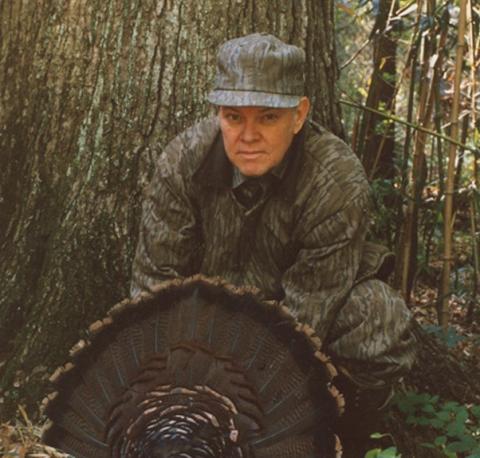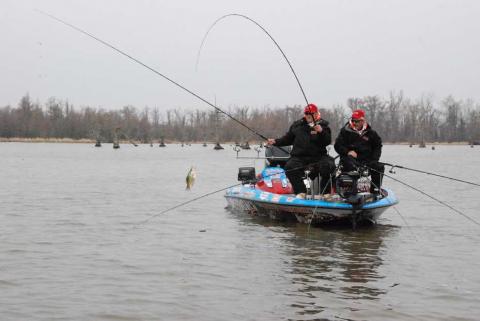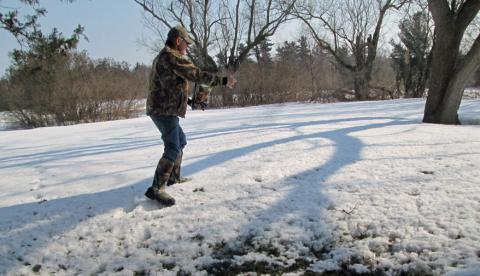Saltwater fishing is an exciting and relaxing activity that many anglers find to be unique when compared to freshwater fishing. On the sea, you will fish for new species that can be larger and more challenging, while the open water tests your skills, strength, and perseverance. Many who try saltwater fishing for the first time end up getting hooked themselves.
Because the ocean and the fish within it are so much different from those you'll find in lakes, streams, and ponds, there are different rigs, sinkers, and skills to know. Before you head out on your fishing boat into the sea, take some time to learn about the ins and outs of saltwater fishing so your day on the water will be a successful one.
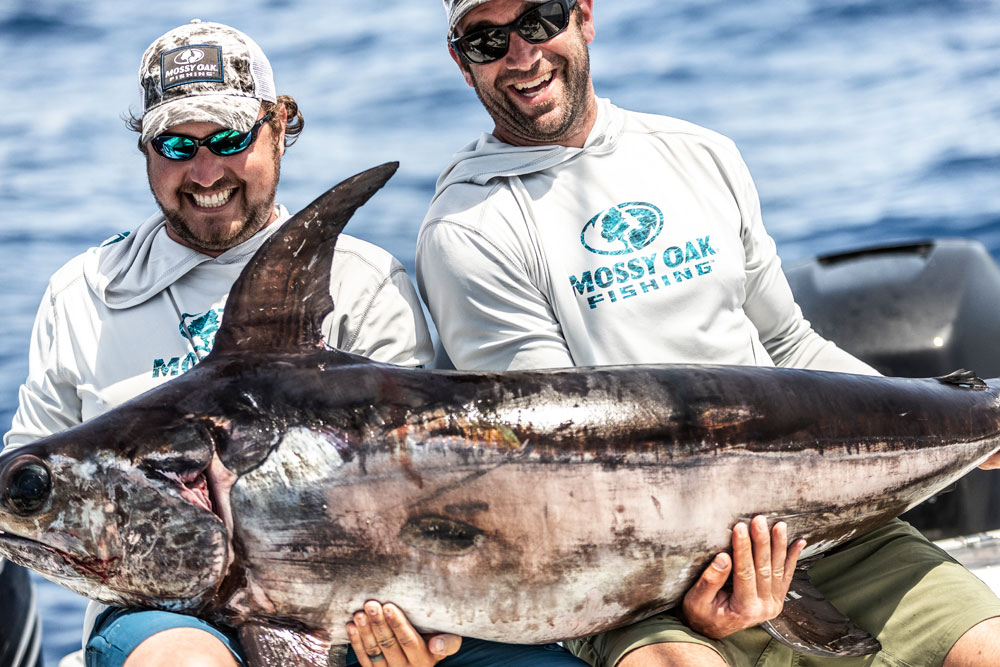
Regulations and Licenses
Before you head out, familiarize yourself with local regulations and ordinances for saltwater fishing. If you need a fishing license, you'll have to carry that with you. Seasons and daily limits restrict some areas and species. Public fishing piers generally just require a fee without a license, but that is not always the case. It's essential to know the laws and regulations for fishing in your area so heavy fines don't ruin your day.
Tides and Tidal Currents
One of the first things you'll have to pay attention to is the direction of tidal currents and the low and high tide times, which you don't have to worry about on a lake. Depending on where you're fishing, whether it's off of a pier, in a sandbar, or on a boat, knowing when high and low tides are can be important for where you will set up your gear and settle in. On the open water, try to arrive an hour before high tide and begin your angling session. The fish will be plentiful until about an hour after high tide.
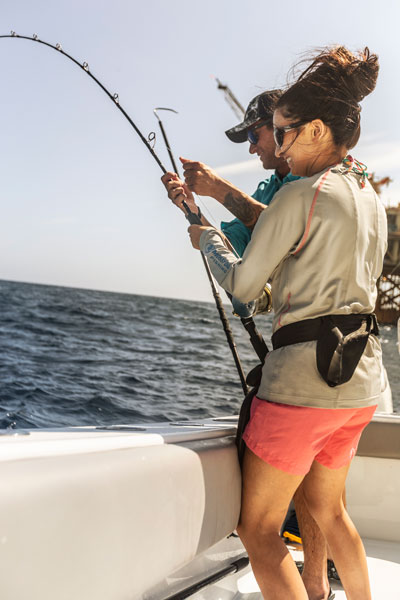 Channels, inlets, and other inshore saltwater areas don't always follow the tides when it comes to currents. Sometimes they can move slower or faster or run in a different direction. Many fish in these areas will follow the direction and movement of the tidal currents, so it's crucial to look up these factors before fishing in these areas. Likewise, low tides may also affect how many fish are available in channels and inlets, depending on what kind of fish you are looking to reel in.
Channels, inlets, and other inshore saltwater areas don't always follow the tides when it comes to currents. Sometimes they can move slower or faster or run in a different direction. Many fish in these areas will follow the direction and movement of the tidal currents, so it's crucial to look up these factors before fishing in these areas. Likewise, low tides may also affect how many fish are available in channels and inlets, depending on what kind of fish you are looking to reel in.
Equipment
Your saltwater fishing gear is going to be a different experience than freshwater gear. First, you need to remember that salt corrodes gear, and your guidelines and reels are particularly vulnerable to rust and weakening over time. You'll need to make sure you wash down your rods and lines with fresh water from a hose or sink when you get back from the ocean. Also, lube your reel at the end of the season, or twice per year and, if you're inshore fishing, keep sand away from it.
Your gear should be an investment if you intend to continue fishing in the ocean, particularly if you are going to do some deep sea fishing. The waves, tides, and large species of fish can take a toll on your gear, so you'll need heavy-duty sturdy equipment. Ten-pound to twenty-five-pound monofilaments or braided lines and durable stainless steel will last you a long time. If you're headed into deeper waters, you'll want stronger-tested line.
Invest in a spinning reel rather than a conventional one. A spinning reel allows you to cast your line out further without developing birds nest problems. Make sure your reel holds enough line because, in deeper areas, you may run out of line and braid quickly. Additionally, ensure your spinning reel holds braid well without slippage.
Monofilament has long been the line of choice for saltwater fishing, but braid lines sink quicker, especially when using a heavy jig. It doesn't resist the currents as much as traditional monofilament does, making braid line a better choice for depths of 200 feet or more. You'll need to check both braid lines and monofilament often for weakening. Monofilament, in particular, needs to be changed or cut more often to maintain the poundage test it was designed for.
Your hook should match the size of your bait. Live bait hooks provide a tantalizing snack for your prey because the bait can swim around without obstruction while on the hook. J hooks are great for chunked bait and will keep the bait secure. Circle hooks are another popular choice, especially if you're not planning on keeping what you catch. Circle hooks catch in the fish's mouth instead of their throat and are easy to remove quickly. They also don't damage the fish's mouth, unlike some traditional hooks.
Bait and Tackle
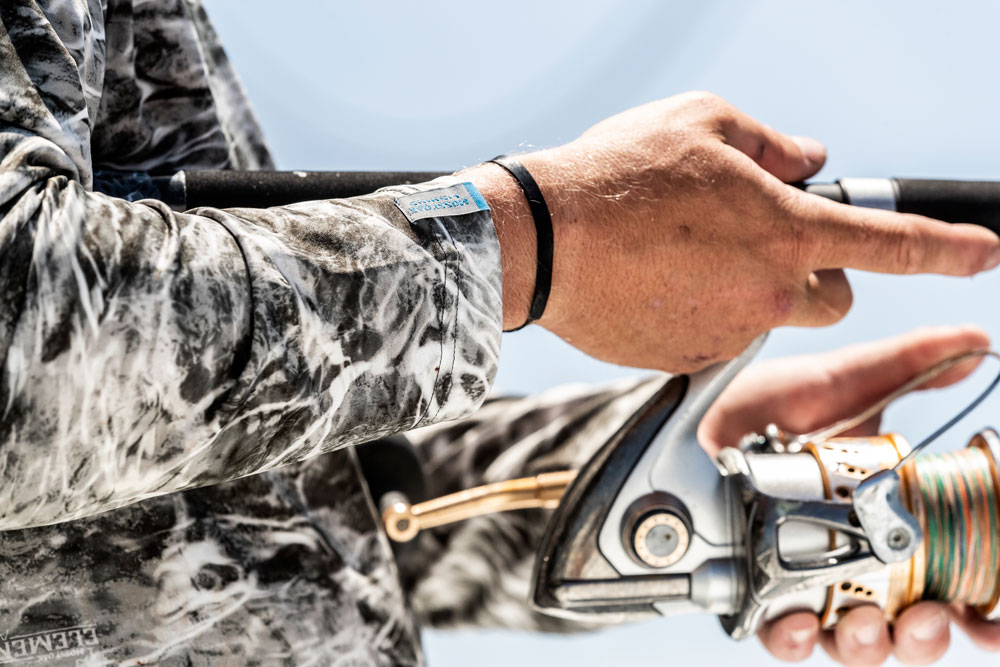
The best choice for bait is to find out what the fish in that area normally eat. Strip bait or chunk bait can also be a useful choice. If you're using live bait, make sure you're keeping it in as good a shape as possible, so it's attractive to the fish you want to catch. If you're planning on spending a day or so on your boat, keep your live bait aerated and in a fresh bucket of water so it will last the entire day.
If you're using lures, ensure they are brightly colored, so they stand out from wave motions and in darker waters. Over time, saltwater can dampen the appearance of lures, so you may need to replenish yours more often than freshwater lures. Noisy lures are also useful if you're fishing in waters that are moving. Use loop knots to secure your lures because it allows the bait to mimic natural movement.
Marine Charts
Use marine charts that are up to date on where you can find the most popular gathering areas for the fish you want to catch. This will save you a lot of time and energy, especially when you first set out on the water.
Seek Out Guidance
If you're not sure where to begin when it comes to either saltwater fishing or deep sea fishing and you want guidance in getting started, sign up for a charter boat fishing trip with professionals who can help you learn the ropes of fishing on the high seas. If you want to ease into saltwater fishing, start by going to a public fishing pier and simply dropping your line down into the waves.
There are also lots of resources and experts in your local fishing clubs and rod and game clubs. Visit their websites or call and find out when they might be having a saltwater fishing class or if they have members who volunteer to teach beginners. These clubs are particularly useful for learning the different species of fish available in your area and the best strategies to catch them.




















